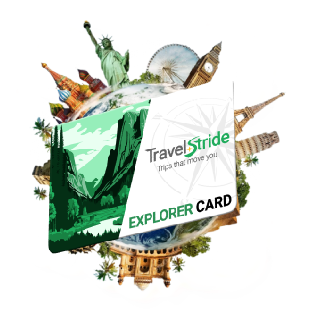The soft African breeze picks up dirt on the savannah and the hazy late afternoon sun filters through. Through the sun dappled air, a giraffe lazily saunters into view, her distinctive tan markings matching the color tone of the ground. As the dust settles you see an elephant silhouetted in the distance.
It’s moments like these that make an African safari absolutely unforgettable. It’s the trip of a lifetime and there are few experiences that leave one so awe inspired.
Ready to start searching for the perfect African Safari tour right now?
See over 900 safaris on Stride, read traveler reviews, and find the perfect tour for you »
Or read on to get the full scoop on planning an African Safari in our ultimate planning guide...
Jump to: Top African Safari Destinations | Planning Your African Safari | Safari Lodges | Safari Packing List | Health and Safety | Unique African Safari Experiences | Top Safari Bloggers
1. Top African Safari Destinations
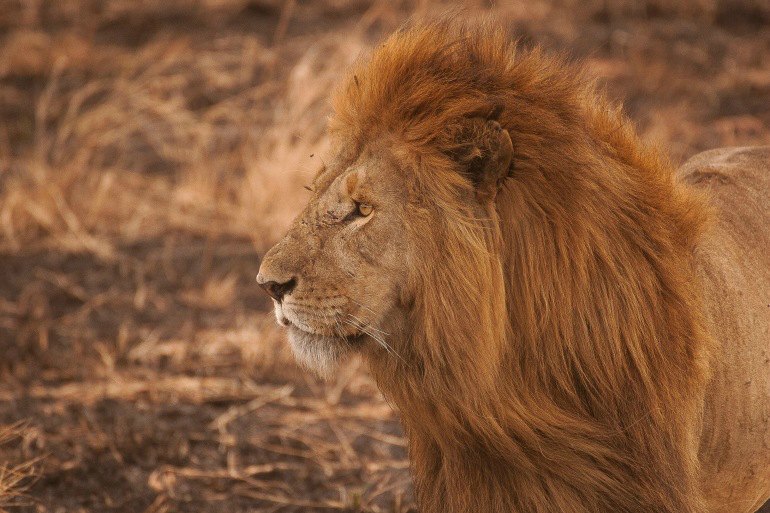
Among the most popular African safari destinations are South Africa, Tanzania, Botswana, Kenya, and Namibia.
These all feature well cared for wildlife reserves, welcoming local cultures, and special sites of note, such as the Okavango Delta (Botswana), Ngorongoro Crater and Kilimanjaro (Tanzania), Maasai Mara National Reserve (Kenya), Kruger National Park (South Africa), and Fish River Canyon (Namibia)- just to name a few! See below for more highlights in each country:
Safaris in South Africa
South Africa is the perfect destination for a well rounded trip; you can go on safari for a few days, visit historic Robben Island, and urban Cape Town. Just outside Cape Town are some of the most beautiful views when you take a drive along the coastline.
Consider a safari in South Africa if you want the classic ‘Big 5’ experience without straying too far off the beaten path. A good choice for families and first time safari goers.
Safaris in Tanzania
Tanzania has grown steadily in popularity over the past several years. Here you’ll be privy to views of Mount Kilimanjaro, as well as diverse game reserves and parks, including the UNESCO world heritage site: Serengeti National Park.
Consider a Tanzania safari for dramatic landscapes, hiking, and camping. A good choice for a first time active safari.
Safaris in Botswana
Named the top country to visit by Lonely Planet in 2016, Botswana is a nature lovers dream. The stunning Okavango Delta attracts wildlife of all shapes and sizes, and many Botswana safaris focus here. Chobe National Park is another place for a high concentration of animals.
Consider a safari in Botswana for a deeply immersive experience and extensive wildlife viewing. A good choice for budding photographers.
Safaris in Kenya
A classic safari destination, Kenya is known for expansive reserves, the intriguing Masaai culture, and beautiful scenery. It's the perfect introduction to Africa; showcasing everything you want from a safari, but still less crowded than more recently popular safari countries. Travelers have ventured to Kenya for decades and it's often called one of the "oldest" safari destinations. Why mess with a good thing?
Consider a safari in Kenya if you’re looking for a cultural experience and dramatic wildlife. A good choice for first time safari goers.
Safaris in Namibia
Less common among the big names of safari destinations, Namibia is nonetheless a place worth checking out. It has a distinctive landscape; far more desert and sand than you will find in the other major safari spots. A trip to Namibia may also allow for a stop at Victoria Falls, which is just over the border in Zimbabwe.
Consider a safari in Namibia if you want to venture off the beaten track. A good choice for second or third time safari goers.
2. Planning Your African Safari
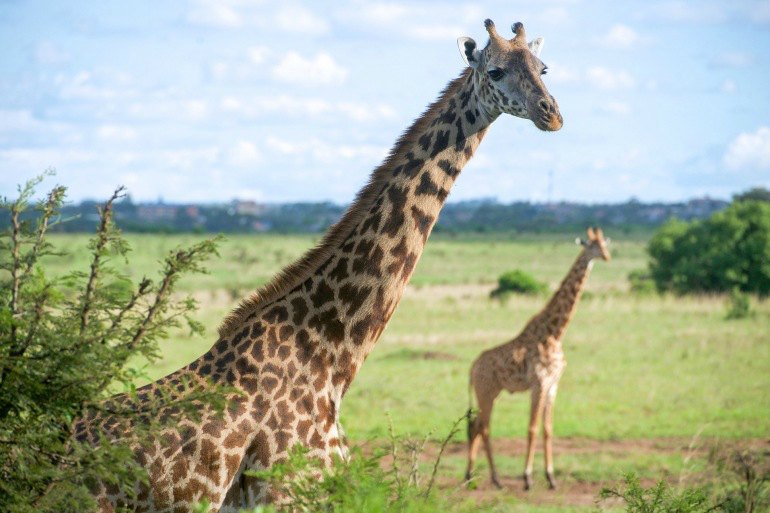
Once you’ve decided where to go on safari, the next question to ask is what style you’re going for. The great thing about an African safari is that it’s perhaps one of the only travel experiences where great budget to luxury options exist. You can camp under the stars on the savannah or enjoy fine wine, food, and private service in a 5 star lodge. And in some cases, even a combination of both is possible.
Luxury safaris tend to be around $5,000 per person on the lower end - and they can get as high as $20,000 per person. With that price comes a lot of personalized service, private vehicles, and excellent accommodation and dining. Enjoy a glass of champagne on the veranda as you gaze across the African savannah.
At the other end of the spectrum, a budget safari is another great way to experience the country and wildlife. These tours will typically feature small groups, and are around $4,000 at the high end, but it’s possible to find safari experiences as low as $500 - and they don’t all involve camping. Enjoy hearing the buzz of the African night outside your tent and sipping coffee by a fire in the early morning dawn.
Next you’ll want to narrow down the operator you want to travel with. Some of the top Safari operators include: Lights on Africa, Rothschild Safaris, Abercrombie & Kent, Acacia Africa, and G Adventures.
On Safari with Lights on Africa
Get a unique glimpse into daily life in Africa. Lights on Africa caters to all age travelers seeking to explore East Africa. They accommodate multiple budgets, offer special packages such as students packages, honeymoon packages, and more.Owned and operated by local Tanzanians, this is truly one of the best places to go for a culturally immersive experience.
On Safari with Rothschild Safaris
On Safari with Abercrombie & Kent
The Classic Safari Lodge
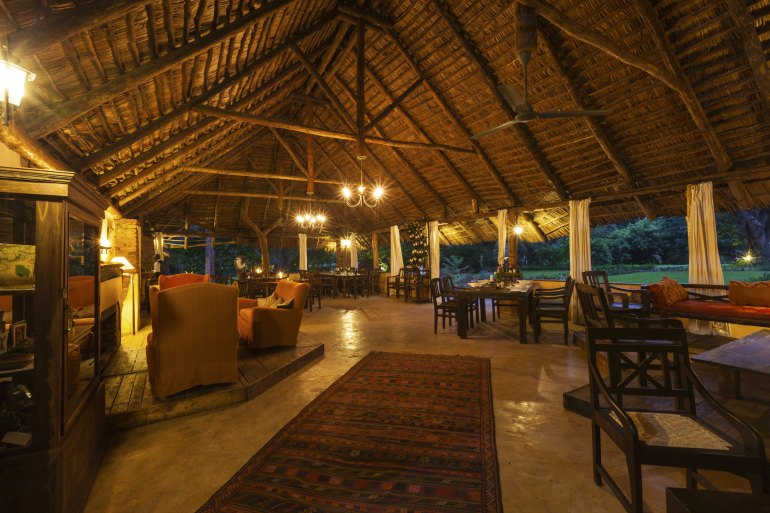
Staying in a safari lodge is a large part of the experience for many. These comfortable accommodations have a long history, dating back to the turn of the 20th century.
Queen Elizabeth II herself stayed at the Treetops Hotel in Kenya in 1952, during which time she learned of her father King George’s death, and therefore her ascension to ruler. A famous line from her bodyguard Jim Corbett reads “For the first time in the history of the world, a young girl climbed into a tree one day a Princess and after having what she described as her most thrilling experience she climbed down from the tree next day a Queen.”
The history of safari lodges is complicated - conjuring images of colonization, as they were often used by members of the british aristocracy. They also were frequently patronized by big game hunters at a time when conservation was barely even a thought.
That said, another historic lodge you can stay at is Londolozi in South Africa. Established in 1926, it holds the distinction of being an early leader in conservation practices, long before sustainability ideology was in vogue.
Today the lodge experience is much different, though call-backs to Victorian roots are prevalent. Typically situated far out in the middle of the bush, yet fully vetted with indoor plumbing, clean water, and 5 star dining options, they are a way to experience Africa and African wildlife in comfort. They are popular among honeymooners and couples of all ages, and an especially nice option for older travelers.
If you’re traveling with a young family, there are a number of family friendly safari lodge experiences. Shamwari Game Reserve in South Africa has a few different lodges including one specifically designed for families. Another is Jock Safari Lodge in Kruger National Park, which features multiple programs and activities for kids. Some, such as Jacis Lodges in the Madikwe Game Reserve, offer children-only safari outings and educational programs where kids can learn about wildlife and conservation.
Eco friendly lodges are on the rise as well, and popular among younger budget travelers. In a place where wildlife is such a quintessential part of the experience, sustainability and green travel is integral to the protection of this experience.
Consider these award winning eco and sustainable lodges, which continue to aid in conservation efforts: Elsa’s Kopje in Kenya, Meno A. Kweno in Botswana, Tafika Camps in Zambia.
Find and compare hundreds of african safaris. Pick the perfect safari for your travel style.
3. Safari Packing List
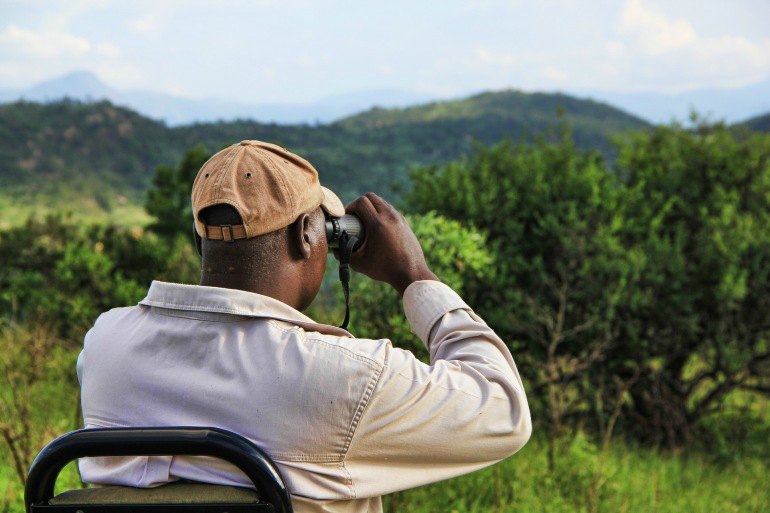
When preparing what to pack for your safari, leave valuables, such as watches and jewelry at home.
For the necessities, like your phone, ATM cards and cash, make sure to have a way to keep them hidden, such as a non descript money pouch.
However, it’s advisable to not bring these items with you while out on safari - most lodges will have lockers you can use or you can leave them with front desk staff.
Pack as light as possible, especially if your trip involves any small in-country flights - these tend to have quite high weight restrictions.
Some essentials to remember when packing for your African safari: invest in a nice pair of binoculars! Bring strong insect repellant, chapstick, and light weight long sleeves and pants. Here's some tips to help:
Clothing
For all clothing items, avoid white or other bright colors - the savannah is one place you don’t want to stand out! But also don’t go too dark - blacks and blues will attract those pesky mosquitos you want to avoid at all costs. Clearly there’s something more to this khaki thing...
Be sure to have a hat for protection from the harsh savannah sun - plus it’s the finishing touch for that quintessential safari look. Consider this Hemp hat from Tilley.
Clothing Resources:
Icebreaker - Weather in Africa can be unpredictable in all seasons - having layers is essential and Icebreaker makes great items for men and women. Their clothing will be particularly useful for cold overnight camping.
TravelSmith - Higher end clothing for men and women, designed to be functional yet stylish and easy to pack.
Royal Robbins - Eco friendly items, perfect for striking out on safari.
ExOfficio - Lightweight and insect repelling clothing designed specifically for travelers on the go. They have diverse styles and collections for both men and women.
Moab Collection from Merrell - For shoes on safari, comfort and covered is key. Some our favorites are these ones from Merrell.
Orvis - Heavily geared toward fishing gear and clothing, (for you and your pets!) they have some standard items that will be useful for your safari, such as this cotton bush shirt.
Photography
For photography enthusiasts, make sure you pack extra memory cards, and any lighting accessories necessary for night vision shots. Long lenses are also advisable for getting clear shots of animals a long way off. However, they instantly make your luggage more bulky, so be prepared - and weigh getting the perfect shot against the knowledge that it will be very bumpy and dusty. Phone camera takers should consider renting or purchasing a nicer camera for the trip - you won’t regret it!
Photography Resources:
Binocular Resources:
Other Safari Packing Tips and Resources:
AskBaz - Sea to Summit is an online store for hard core camping and backpacking gear. This is their blog which features gear advice and tips on traveling light
Her Packing List - Safari packing tips specifically for women
Wendy Perrin - Top travel blogger and travel planner, with advice on what not to leave behind on safari
His + Hers - Luxury travel bloggers give their safari packing lists
Mahalatini - Packing list from this luxury safari operator offering expert tips including luggage size recommendations for charter flights
4. Health and Safety When Traveling to Africa
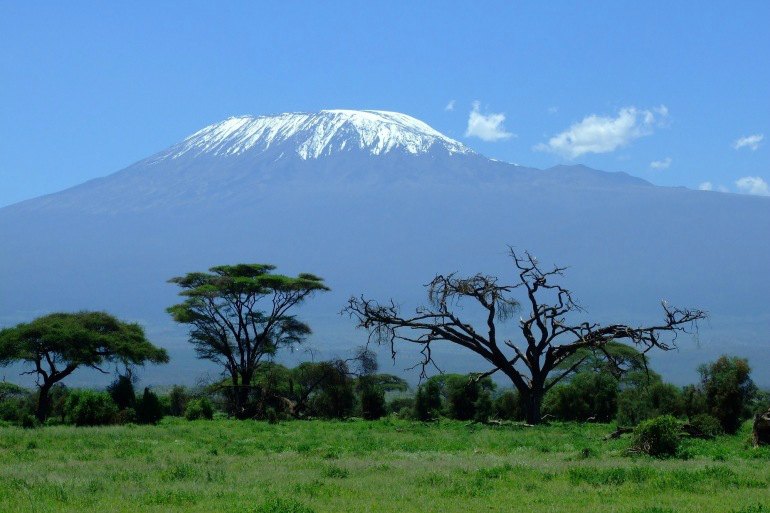
Before traveling to Africa, and especially on a safari, there are some important safety measures to take. Before you go, make sure you've consulted with a doctor and gotten all necessary vaccinations, and have proper anti malarial medication.
In country, be cautious walking at night in urban areas, and leave non-essential valuables at home. Even if you're staying in a luxury lodge, rethink the diamonds for dinner. Being on safari is dusty and bumpy - don't bring anything you don't absolutely need during the day, and utilize jackets with zippers.
Insurance
While you should always travel with insurance, it is especially important for activities that involve some element of risk. The vast majority of reputable safari operators make safety a top priority, but still, unpredictable complications are possible.
Consider bringing your own small medical kit, like this one from Adventure Medical Kits. This is especially useful if you have extra medications to take.
Recommendations for Travel Insurance:
World Nomads - If it's possible to make insurance "cool" World Nomads has done it. They provide affordable travel insurance while also fostering a growing travel community.
Travel Guard - No frills travel insurance with multiple plans available.
Vaccinations
One of the most important preparations to make is taking precautions against malaria and yellow fever. Schedule a visit with your doctor as soon as possible after booking your safari - this will also ensure that you have time to arrange having enough of any of your regular prescription medications.
Your doctor and tour company will most likely recommend that you bring anti-malaria prophylactics with you on your trip, in addition to getting a Yellow Fever vaccine. Bring proof of vaccination with you in case you need to show it upon entering Africa. This is a routine vaccine and you’ll receive an official certificate to show at the port of entry.
Where to get a vaccination:
Visas & Passports
Your tour company should let you know which visas will be required. In general, a 90 day tourist visa is the standard requirement. For some countries the entry visas are available after you arrive. Make sure your passport is valid for at least six months before your travel date!
Visa Resources:
Money & Other Considerations
While it will be a good idea to have some local currency, most major currencies are accepted. If using US dollars, make sure you use new bills. ATM cards are also widely accepted. Travelers cheques are becoming far less common so don’t expect them to be accepted everywhere.
You may see many street money changers - but avoid the temptation to use them for their low rates! Most of these operations are scams.
Avoid handling or counting large sums of cash while walking around the cities, and keep any bulk amounts, including multiple credit cards if you have them, concealed.
Water purification is a big one. If your safari involves camping or trekking for long stretches, it will be important to have a water purifier so you can refill along the way.
Camelback’s All Clear has been used by one of the team members at Stride and he swears by it! And for those all important electrolytes, consider Nuun energy supplements, which comes in lots of tasty flavors.
5. Unique African Safari Experiences
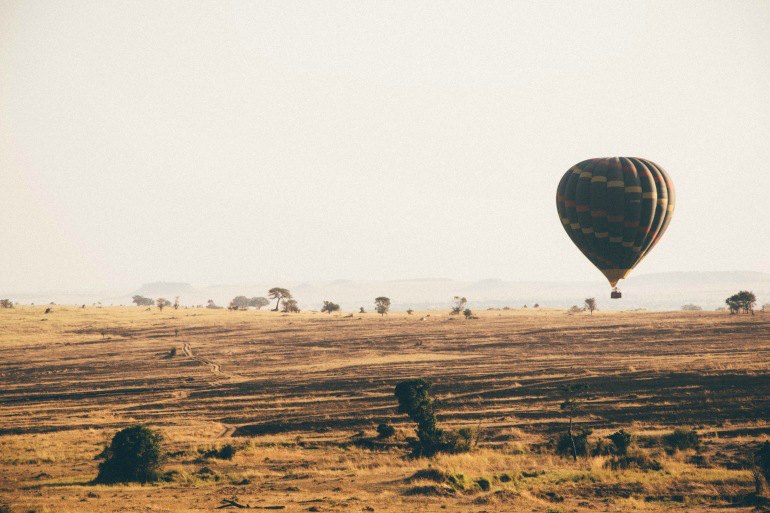
As if being on safari wasn’t unique enough, there are some unique safari experiences that many tour companies incorporate to make their trips extra special.
The best African safaris usually allow for more than just wildlife viewing, although that is (rightly so!) the focal point.
Cultural Immersion
You might stay in a village home. This is a great way to discover what everyday life is like; help prepare meals, and learn farming practices.
Traditional dances, music, and rituals are other fantastic additions you may be able to see and learn about. You may even be welcomed to join in tribal events or celebrations.
From the Air
Viewing the Great Migration from overhead in a hot air balloon - two exhilarating experiences in one!
Another hard to pass up excursion would be taking a micro flight over Victoria Falls. Already stunning from the ground, seeing it from the air gives an entirely new perspective.
On Land
Adding a Kilimanjaro extension onto your safari is a popular choice among travelers. Be sure to prepare accordingly though! Depending on weather conditions, you’ll need cold weather clothes- and make sure you’re physically fit enough to keep pace.
Another popular extension is Gorilla trekking. The two best places for this are Rwanda and Uganda. You many require additional paperwork if you plan to add this onto your trip. Gorilla trekking requires a permit, and they sell out fast - your tour operator can usually secure one for you.
Overland Safaris
With your fellow travelers you’ll help prepare meals, clean up, and assist with other chores as needed. It’s a great way to feel a part of a small community as you experience the expansive African continent, traveling between countries and covering long distances.
6. Our Favorite Safari Bloggers
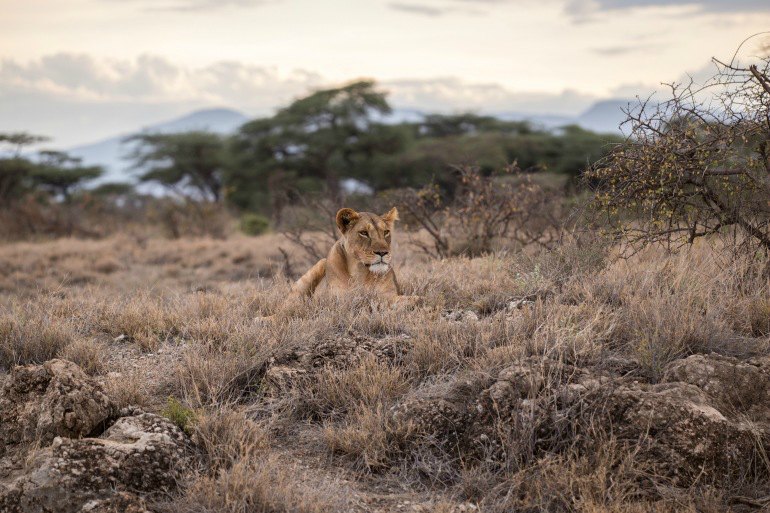
Mzansi Girl - Meruschka, a local South African, writes about responsible tourism and African culture on her blog. A great resource for first time travelers to Africa.
The Incidental Tourist - Dawn Jorgensen is based in South Africa and is a sustainable travel advocate. Her writing focuses on how to be a responsible traveler, and leaving a smaller carbon footprint.
Roxanne Reid - Roxanne is a travel writer, focusing on multiple facets of travel throughout Africa. Go here for practical tips as well as information on cultural experiences.
Safari Junkie - It’s there in the name! Safari Junkie is the place to go for all the tips and tricks you need to make your safari amazing. Worth a visit for her stunning photographs alone!
Backpacking Africa for Beginners - Slightly more niche, this blog talks about volunteering abroad and the backpacking budget travel experience. Guest posts will often be featured, where other travelers share their own experiences traveling in this style.
Where Lions Roam - Another great resource for first time safari goers, this blog features photographs and videos that are sure to inspire. Useful information, from history to top sights and hidden gems, is also provided.
Read reviews for all tour operators specializing in safaris »

